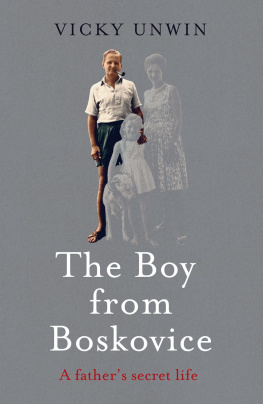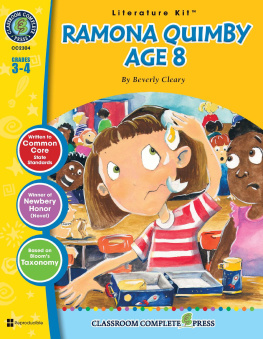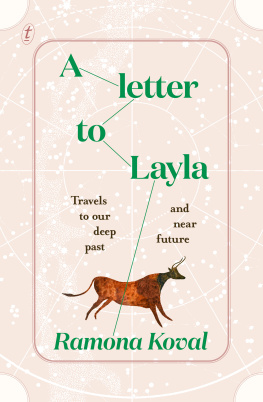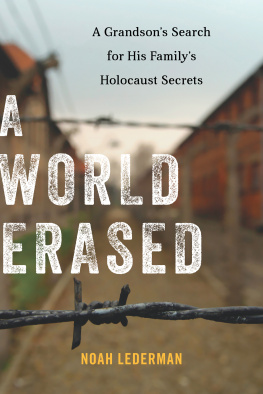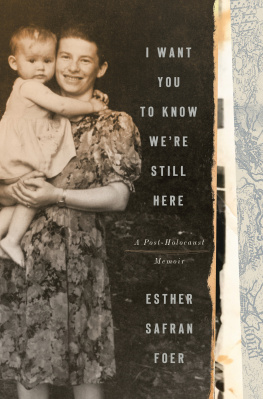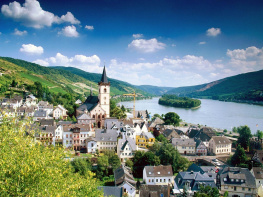
BOOKS & JOURNALS
Antelme, Robert. The Human Race, trans. Jeffrey Haight & Annie Mahler, MarlboroPress / Northwestern University Press, 1998. (Originally published as LEspce humaine, ditions Gallimard, Paris, 1957.)
Casanova, Giacomo. The Memoirs of Jacques Casanova de Seingalt, trans. Arthur Machen,1894.
Goldstein, David B. Jacobs Legacy: A Genetic View of Jewish History, Yale UniversityPress, 2008.
Koestler, Arthur. The Thirteenth Tribe, Random House, 1976.
Krall, Hanna. The Subtenant & To Outwit God, trans. Jarosaw Anders, NorthwesternUniversity Press, 1992.
Langbein, Hermann. People in Auschwitz, trans. Harry Zohn, University of North CarolinaPress, 2004.
Levi, Primo. The Drowned and the Saved, trans. Raymond Rosenthal, Abacus, 1988.
Lichtenstein, Rachel, & Sinclair, Iain. Rodinskys Room, Granta, 1999.
Meed, Vladka. On Both Sides of the Wall: Memoirs from the Warsaw Ghetto, trans. StevenMeed, Knopf Doubleday, 1979.
Oeggl, Klaus, et al. The reconstruction of the last itinerary of tzi, the NeolithicIceman, by pollen analyses from sequentially sampled gut extracts, Quaternary ScienceReviews, 26: 78, 2007, pp. 85361.
Ostrer, Harry. Legacy: A Genetic History of the Jewish People, Oxford UniversityPress, 2012.
Paulsson, Gunnar S. Secret City: The Hidden Jews of Warsaw, 19401945, Yale UniversityPress, 2002.
Richie, Alexandra. Warsaw 1944: Hitler, Himmler, and the Warsaw Uprising, Farrar,Straus and Giroux, 2013.
Sykes, Bryan. The Seven Daughters of Eve: The Science that Reveals Our Genetic Ancestry,W. W. Norton & Company, 2001.
Tec, Nechama. Dry Tears: The Story of a Lost Childhood, Oxford University Press,1984.
Tec, Nechama. Resilience and Courage: Women, Men, and the Holocaust, Yale UniversityPress, 2004.
Turnbull, David. Out of the glacier, into the freezer: tzi the Icemandisruptivetimings, spacings, and mobilities, in Cryopolitics: Frozen Life in a Melting World,ed. Joanna Radin & Emma Kowal (forthcoming).
Wasserstrom, Dunia. Testimony from the Auschwitz Trial, April 23, 1964, quotedin Holocaust Historiography in Context: Emergence, Challenges, Polemics & Achievements,ed. David Bankier & Dan Michman, Berghahn Books, 2008.
WEBSITES
Center for Holocaust & Genocide Studies, University of Minnesota: chgs.umn.edu
Genographic Project by National Geographic: genographic. nationalgeographic.com
Dovid Hofsteyns We spring from rocks: mendele.commons. yale.edu/author/vbers/page/378
Cypora Jablon Zonszajns Siedlce memoir: deathcamps.org/ occupation/siedlcememo.html
Nathaniel Kahns My Architect: A Sons Journey: vimeo.com/9418890
Jane Kormans And now we dance: a celebration of life after
Auschwitz: youtube.com/watch?v=CuvgUZeUo8Y
Magorzata Melchiors The Holocaust survivors who passed as non-Jews in Nazi-occupiedPoland and France: fondationshoah. org/fms/docpdf/coinchercheurs/melchior.pdf
Pinkas Hakehillot Polins Mawa chapter, Encyclopedia of Jewish Communities in Poland:jewishgen.org/yizkor/pinkas_poland/ pol4_00280.html
This American Life, The Ghost of Bobby Dunbar, 14 March 2008: thisamericanlife.org/radio-archives/episode/352/the-ghost-of-bobby-dunbar
University of Southern California Shoah Foundation: sfi.usc.edu Dr Izhak Zeev YunissThe Old Hometown: zchor.org/ mlayunis.htm
DADS eightieth-birthday party was held late last century in his favourite restaurant,a cavernous space in a middle-class Melbourne suburb, with a tiled floor for easycleaning, possibly even hosing down, and little in the way of warmth, charm or decoration.Clearly, you were here to eat until you were full.
Waiters balanced huge platters of food on their shouldersgrilled meats and fishand salads and dips and bread, bread, breaddelivering them to long tables of grandparentsand their grandchildren, their daughters and sons-in-law, sons and daughters-in-law,and second and third cousins and their partners. The place forbade people from bringingtheir own drinksinstead you got them at the bar, or had them delivered to the tableafter a lengthy delayand each time the waiters ventured down the aisles they wereaccosted by ten burly customers, hands grabbing their shirts and threatening to unbalancethe heaped trays. My water! Wheres my Diet Coke? I asked for a cappuccino! Itsbeen ten minutes already and Im dying of thirst!
Dad, on this, his day, had smuggled in orange juice and mineral water in a stringbag. Hed stashed the bottles under his chair, from where he sneaked them out infull view of his grandchildren, his dark-brown eyes winking loudly: for if therecan be such a thing as a winking noise, Dad had it in his repertoire. He was playingthe big man, as my mother might have put it, a big shot with a string bagas if thiswould fool anybody.
My mothers voice was in my ear, but not because she was sitting beside me. Her voicelived in my head. She had been dead for twenty-one years. She didnt make it to herfiftieth birthday, much less her eightieth. Each time Dad reached a new milestoneI did the calculation. Why couldnt it be she who was celebrating, and he who waslying dead in the ground?
I know youre not supposed to wish people dead. Was it his fault that he had a newwife and a new life? They had been together for at least twenty-two yearsanothercalculation I would do, justifying my outrage on Mamas behalf. I have always beengood at calculations.
Mama had found a photograph of a strange woman along with a small hand mirror. Theyhad been secured by a rubber band to the underside of the sun visor on the passengerside of our family car, a white 1963 Ford Falcon that Mama and Dad were still drivingin the mid-1970s. The woman was standing by a dark-green shrub, smiling at the photographer,who may have been Dad.
She was attractive, I remember thinking, much too attractive for him, surely, a shortman with greying black hair slicked straight back from his forehead. The girlfriend, as we came to think of her, was several years older but more vital-looking than Mama,whod had chronic myeloid leukaemia for a couple of years by then.
Mama tucked the photo back under the sun visor and I dont remember it being mentionedagain, although she and Dad could have argued about it in Polish and I wouldnt haveknown. They had a long history of fighting but also of mind games. In our familyalbum of often out-of-focus Box Brownie black-and-white photos (all of which seemedto have been taken a long way away from the subjects, so it was hard to see who theywere and what they were doing) there were two photos of Dad with another man andtwo women, strangers to me, on a jaunt in an open-top sports car. Id never seena car like thatI had no idea what they were doing together and who took the photo,why they were in the album and why Mama left them there.
He must have known shed find the photo behind the sun visor. It was her car, too,and surely the rubber band in her eye line was a dead giveaway. Just as he must haveknown that everyone at the eightieth-birthday lunch would see his contraband drinks.He must have wanted them to.
Dad left Mama to set up house with the girlfriend, who later became his new wife,in January of the year of Mamas October death. It sounds bad. But most family storiesare complicated.
My oldest nephew, then eleven, was sitting next to me at the birthday lunch. He wasalmost old enough to start preparing for his bar mitzvah, nearly a man, so he wasallowed to taste the wine. I was teaching him to sip it slowly, to savour it. Notthat I was an expert wine drinker. I dont really like its taste, preferring a shotof vodka. I agree with Ogden Nash that liquor is quicker.
Next page
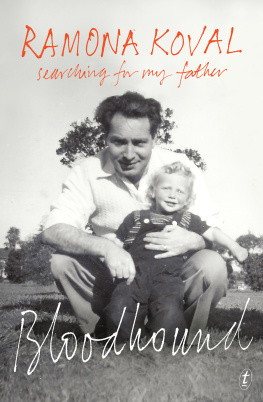
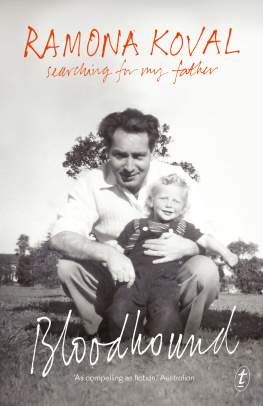
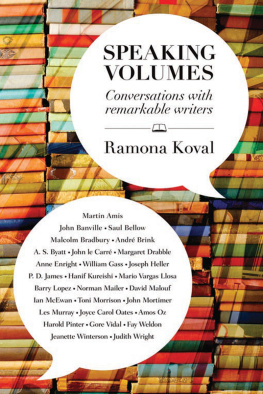
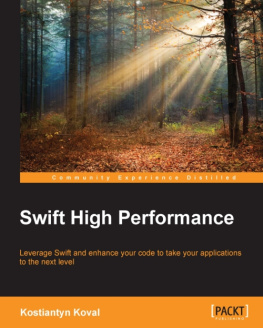
![Meri Koval - Articulated Restraint [Lady Astronaut #1.5]](/uploads/posts/book/868242/thumbs/meri-koval-articulated-restraint-lady-astronaut.jpg)
